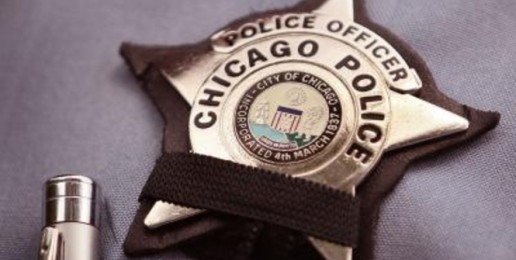
Former Chicago Police Superintendent Phil Cline joined other Illinois law enforcement leaders at a press conference at the Daley Center today announcing their opposition to the proposed “medical marijuana” bill now pending in the Illinois House of Representatives.
Cline, who is co-chair of the newly formed Illinois Partners Providing Marijuana Education, said the group’s goal is “to educate the public and legislators about the facts related to marijuana and counter misinformation and distortions of fact being heavily publicized by pro-marijuana legalization lobbyists.” There are 13 organizations and individuals in the group, including Illinois Association of Chiefs of Police, Illinois Sheriffs’ Association, Educating Voices and Prevention First, a drug prevention resource center.
Peter Bensinger, former DEA Administrator and president of Bensinger, DuPont & Associates, a consulting firm working with Drug-Free Workplace programs, warned that SB 1381, which would legalize marijuana use by individuals with specified ailments, “would be a major problem for employers and drive businesses away from Illinois.” He said the proposed bill “would compromise meaningful workplace drug testing by requiring impairment to be shown.” Proving impairment is not a criterion for current workplace drug testing programs. “This means that someone who tests positive for marijuana in their system could be allowed to drive a car, interact with customers or operate machinery,” he said, adding, “Employers would have to wait for accidents or other problems to happen before they could take action.”
A primary issue for the group is having legislators vote on what is medicine and how it is used to treat patients. “Decisions about what is safe medicine, its dosage, how it is distributed and for what ailments must be left to the Food and Drug Administration (FDA) and scientific procedures, not voters and state legislators,” Bensinger said.
Cline countered claims by legalization advocates that crime will go down if marijuana is legalized for medical or other use. “As a former Chicago police officer who worked narcotics and gangs, I can tell you that the passing of this bill will lead to more crime and increased drug use,” Cline said. “Street Gangs will open up marijuana dispensaries and use the profits to buy guns, heroin and cocaine, and bail out fellow gang members.”
Cline also expressed concern that the Illinois bill provides no control over the number of dispensaries that can open or where they can be located, other than within 500 feet of a school. “There could be marijuana sold in a shopping mall where your teenagers hang out, at your neighbor’s house, or next door to your business,” he said, adding, “The potential for increased crime around the dispensaries is going to be very high. We’ve already seen that in other states.”
Chief Patrick O’Connor, president of the Illinois Association of Chiefs of Police, one of the Partner groups, called the potential passage of medical marijuana legislation “an enforcement nightmare” for local law enforcement officers. “This is the first time I have ever seen the production and distribution of a drug placed into the hands of the users without control or oversight of those users,” he noted.
“The number of plants this bill would allow individuals to possess is excessive and presents a high possibility of ending up on the street,” O’Connor said. He explained that the number of plants that would be available to individuals under the proposed law would produce approximately 30 marijuana joints per day. “This is far beyond the number of joints that anyone could possibly smoke in one day, which means there will be a significant amount of left over marijuana with the high probability of being passed on to friends or sold on the street,” O’Connor said.
Brent Fischer, president of the Illinois Sheriffs’ Association, aimed directly at public statements made by legalization advocates suggesting that law enforcement officers have a vested interest in keeping marijuana illegal. “Regardless of what you have heard, law enforcement’s opposition to this legislation is not about money. It is about the message we send to our youth, the safety of our communities, and the rights of employers and property owners,” he emphasized. “We should learn from our sister states’ horrible experiences with this type of legislation,” Fischer said, stating, “Common sense should tell us that this is not about medicine but about legalization of a recreational drug. This is bad public policy — period.”
The speakers also distributed a list of major medical organizations and governmental agencies that do not support marijuana as medicine. “The American Medical Association (AMA) specifically states that its new position on medical use of marijuana should not be viewed as an endorsement of state legalization efforts. Yet the public is being led to believe that it supports these efforts,” Bensinger explained.
“The public and our legislators deserve documented facts before they make decisions about a substance that already has a serious impact on public health and safety,” Bensinger concluded.
Take ACTION: Send your state representative an email or a fax to tell him or her that you do not want marijuana sold in your neighborhood for any purpose. This is your chance to speak up before it’s too late and before it gets passed in the legislature!
































